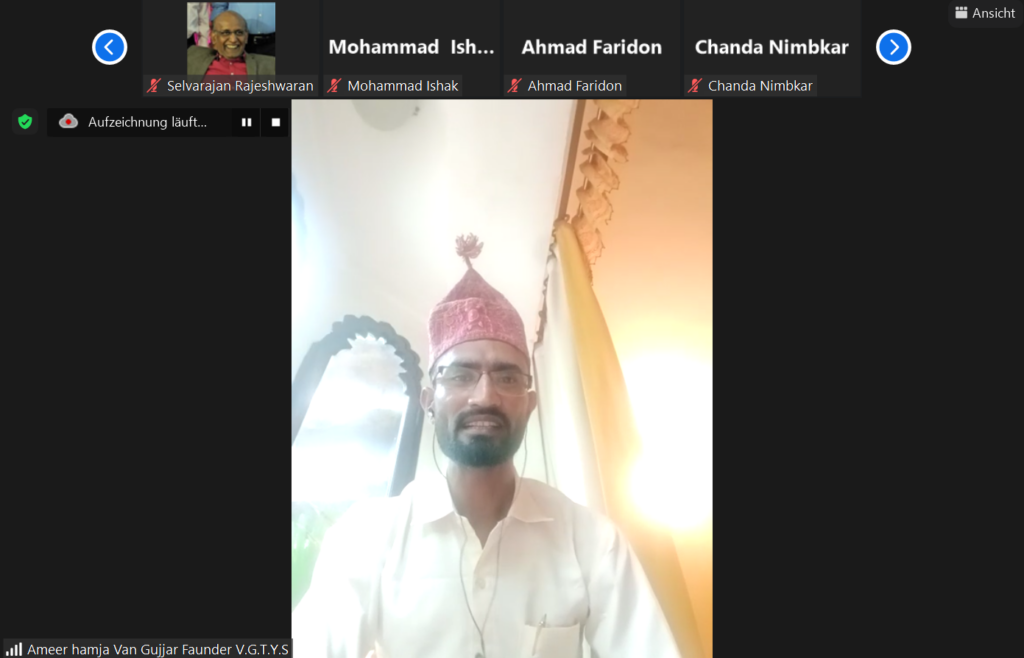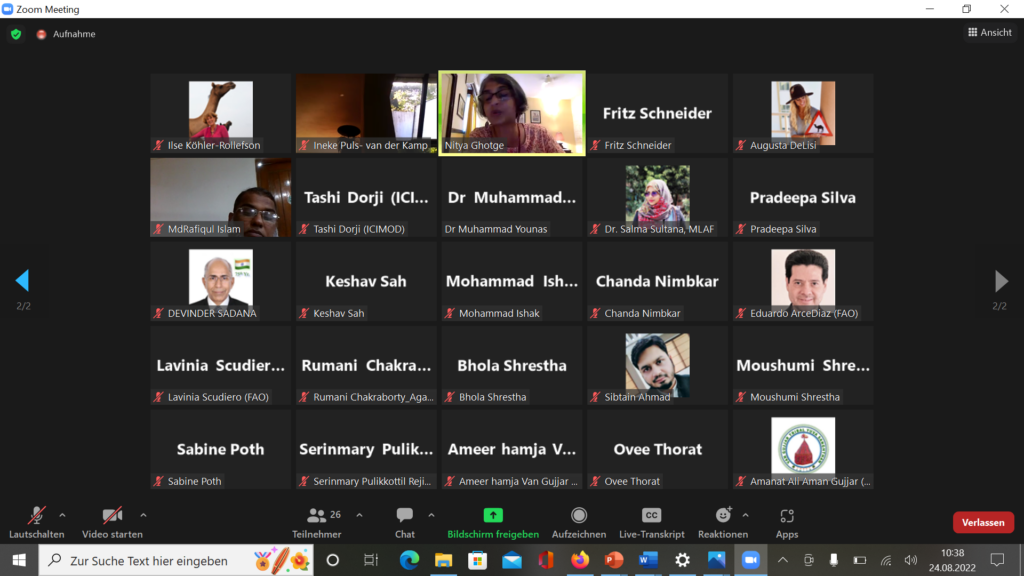In order to accompany and set the scene for the South-Asia Regional Meeting of the Global Agenda for Sustainable Livestock (GASL), LPP, in collaboration with ANTHRA, organised a three day hybrid workshop to discuss Planetary Boundaries for Livestock. The event took place in Jodhpur (Rajasthan) from 22-24 August, 2022. It started out with an introduction to the theme by Nitya Ghotge followed by a brilliant presentation from Katrien van’t Hooft entitled Dutch farmers in distress – a case of exceeding environmental boundaries that explained the background of the current situation in the Dutch dairy sector. The final paper of the day was by Debanjana Dey about the science and policy interface for the conservation of animal genetic resources in India.
After a summary of the first day’s procedings by Prof. Selvarajan Rajeshwaran, the second day began with a presentation by Kamal Kishore and Ilse Köhler-Rollefson contextualising the Indian livestock sector from the perspective of Planetary Boundaries. This was followed by extensive comments from academia by Prof. Sarjan Reddy and from the grassroots by Amir Hamja, founder of the Van Gujjar Yuvak Sangathan. Amir Hamja described in detail the relationship of his community, the Van Gujjars, with their buffaloes and the Himalayan landscape, and how respect for planetary boundaries is an integral part of their culture.

In the afternoon of 23rd August, Robyn Alders of the Australian National University presented the keynote address for the official South Asia regional meeting of GASL, also focusing on Planetary Boundaries. This was followed by a panel discussion with distinguished participants from various South Asian countries.

The final day saw various presentations that focused on innovative and small-scale approaches to put livestock development on a sustainable track, moderated by Chanda Nimbkar of the Nimbkar Agricultural Research Institute and by Ovee Thorat, a free lance researcher. This included a contribution by Himmothan on decentralized feed mills in the Himalayan region and an account of community based eco-restoration of grasslands by Kaustubh Pandharipande from the Foundation for Economic and Ecological Development.
Noteworthy among them was a contribution by Augusta deLisi, founder of Nomadic Nutrition, who explained her vision for the production of ‘cruelty-free’ camel milk based health food that would provide an alternative for people turning vegan because of animal welfare concerns.
